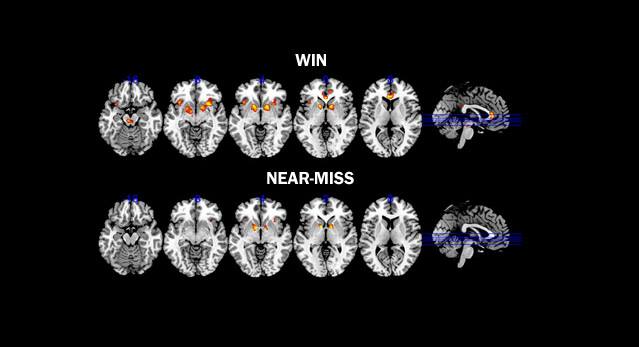Gambling Affecting Mental Health
- Gambling Affecting Mental Health Issues
- Gambling Affecting Mental Health Disparities
- How Gambling Affects Mental Health
- Gambling Affecting Mental Health Benefits

Gambling Affecting Mental Health Issues
Gambling is hypothesized to have both positive and negative health impacts at the individual, intrapersonal and community levels. These impacts range from direct health effects, i.e. gambling may increase stress levels, to indirect, i.e. improvement of health through a stronger community economy.
Gambling can be a bit of fun, but if it becomes compulsive or involves significant loss of money or property, it is considered an addiction and a mental health problem. After diagnosis, treatment. The gambling commission report finds that more than 2 million people are addicted to gambling or at risk of developing a problem. This week we take a closer look at mental health issues and the relationship with problem gamblers.
Negative health impacts
Gambling Affecting Mental Health Disparities
Problem and pathological gambling have been associated with numerous individual negative health effects. Multiple studies, including one in Ontario, have found that persons with gambling disorders have poorer self-reported health12-14 and report higher rates of stress-related physical ailments, including severe symptoms of heartburn and backache.13;15 Scherrer et al found that after adjusting for confounders including co-occurring substance abuse and psychiatric disorders, pathological gamblers had the lowest health-related quality of life scores, followed by problem gamblers, with non-gamblers having the best scores. There were statistically significant differences in scores between the three groups.16 This trend was also observed in a small study of casino patrons, where self-rated quality of life was lower among pathological gamblers than non-problem gamblers.17
Mental illness and substance abuse rates are typically higher in problem and pathological gamblers than in the general population.1;10;12;18-22 Toneatto et al found gamblers had higher rates of alcohol and other substance use than the rest of the population.19 In a study of pathological gamblers, Petry et al found rates of mood disorder to be 49.6%, anxiety disorder 41.3%, personality disorder 60.8%, alcohol use disorder 73.2%, drug use disorder 38.1% and nicotine dependence 60.4%.20 The difference in rates of mental illness and addiction between problem or pathological gamblers and non-gamblers or both, and recreational gamblers has been found to be statistically significant in multiple studies, including an Ontario study.10;12;20;21 Another Ontario study found adjusted odds ratios of 6.51 for gambling problems and substance abuse and 3.88 for gambling problems and alcohol dependence.10 A systematic review performed in 2010 found a mean prevalence of nicotine dependence of 60.1%, substance use disorder of 57.5%, any type of mood disorder of 37.9% and any type of anxiety disorder of 37.2%.22 The authors noted that a range of values existed in the studies, which suggests there is variation in individual populations, but regardless it is evidence of a high rate of mental illness and substance abuse in problem and pathological gamblers.22 Additionally, Toneatto et al determined that the rate of problem gambling among those with substance issues increases with the introduction of a new casino.19
Most of the research on mental illness and substance abuse in gamblers considers them to be co-morbid conditions, and these disorders are often assumed to pre-date the development of gambling disorders.1;6;20 Cunningham-Williams et al used age-of-onset information to determine that gambling problems occurred after the onset of alcoholism in 65% of cases and after the onset of nicotine dependence in 67% of cases.21 A study by Feigalman et al found that persons with both substance abuse and gambling disorders had higher dysfunctionality (as measured by treatment-seeking behaviours and problems with the law) than individuals with either individual disorder.23 In conclusion, while the issue of causality between these disorders is complex, there is evidence that the important health consideration is the high rates of concurrent risky behaviours.
Some studies have also reported higher suicide and suicide attempt rates amongst gamblers.1;14;15;24-26 A study of college students in Quebec found that 27% of pathological gamblers had attempted suicide compared to 7% of students with no gambling disorder.15 Using CCHS data, Newman and Thompson found an adjusted odds ratio for problem gambling and suicide attempts of 3.43.24 Canadian women problem gamblers were 3.6 times more likely to have suicidal ideation than non-problem gamblers, and the odds ratio for suicide attempts was 4.7.14 A study in Atlantic City and Las Vegas found elevated rates of suicide compared to non-gambling communities; specifically, it found that the elevated rates in Atlantic City did not appear until after the introduction of casinos.25 The authors concluded that these results supported a 'hypothesis that one or more of the following subpopulations experience elevated risks of suicide: 1) gamblers visiting gaming communities; 2) spouses of gamblers or children of gamblers who visit gaming settings in the company of a gambling relative (but do not themselves gamble); 3) gamblers residing in gaming communities; 4) non-gambling relatives of gamblers who reside in gaming communities; and 5) non-gambling residents who work in the gaming industry'.25(p378)
How Gambling Affects Mental Health

Positive health impacts


Gambling Affecting Mental Health Benefits
While there is significant evidence on the negative health impacts to problem gamblers, the health impact of gambling on the overall population is less clear. Some evidence exists to support positive impacts of gambling. Using CCHS data, Humphreys et al found that recreational and casual gamblers were less likely to have diabetes, anxiety disorders, moods disorders, and high blood pressure than their non-gambling counterparts.30 It has been hypothesized that this positive association is due to gambling as a source of socialization, relaxation or hopefulness, though evidence does not exist to support a mechanism for this relationship.1;30